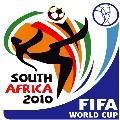As the countdown to the game winds down, South Africa is gripped by World Cup fever.
------------ Excitement over the upcoming event is palpable. But, the enthusiasm is tempered by concerns that reckless behavior might lead to further spread of HIV.
MAN: "Naturally, one would be concerned because with the likes of prostitutes that will be coming over, so people are bound to be more exposed to such activities such as prostitution and human trafficking." WOMAN1: "I'm worried about HIV and crime-everything Ma'am, everything, I'm worried." WOMAN2: "We must keep our bodies safe every time. And, and the condoms, they are the first priority in our country. We must keep doing that campaign." The government launched a huge campaign in late April to test 15 million people for HIV by June 2011. Each person who is tested is to receive counseling and 100 condoms. The World Cup will kick off a program to distribute an additional one billion condoms over the following six months. The government and Global Fund to Fight AIDS, Tuberculosis and Malaria will share the cost of these campaigns.
Yogan Pillay is acting director of the National Department of Health that oversees the HIV/AIDS and TB epidemics in South Africa. He says people who are HIV-positive often are stigmatized and this drives the disease underground.
"Now the HIV counseling and testing campaign that the president launched on the 25th of April, is designed to do multiple things," said Pillay. "One is that it is designed to show people that there is no reason to stigmatize people who are HIV positive. There is no reason for people to fear being HIV positive." South Africa has less than one percent of the world's population. Yet it accounts for 17 percent of the global HIV/AIDS burden. About 5.7 million South Africans are HIV-positive. This high prevalence rate has fueled the tuberculosis epidemic.
Multiple sexual partners and the low use of condoms are blamed for most of the HIV infections.
The South African Football Players Union is actively involved in the anti-HIV/AIDS campaign. Former footballer and Deputy General-Secretary of the Union, Thulaganyo Gao Shubelwe, says footballers can play a positive role in conveying the safe-sex message because of the aura surrounding them.
"We do not want poster boys. We do not want people looking at posters and see them saying HIV kills and so forth… But, we want to use their glamour, you know, to go out there and talk about HIV," said Shubelwe. A group of current and former football players are staging a pantomime before a rapt audience in the Mapune Mall in Soweto. Nearby, people are patiently queuing up in front of a tent waiting to be tested for HIV. These are part of the so-called "Show Me Your Number" program, which uses football players to create awareness of HIV/AIDS. Many of the footballers, like Ronny Zondi, have lost family or friends to AIDS and are committed to saving others from this fate.
"Part of the legacy of the World Cup should be HIV and AIDS as per the national strategic plan, ambitious goal to halve infections by 50 percent," said Zondi. "So, we believe that the World Cup would give us an opportunity to reach as many people as we can." Mega sporting events such as the Olympics and World Cup attract thousands of foreign visitors. They also attract unscrupulous people who engage in nefarious activities, including child labor, human trafficking and abuse of commercial sex workers.
Communication Advocacy and Campaigns Manager for the South African National AIDS Council, Junaid Seedat says the judicial and police systems are monitoring these activities.
"We also have the woman's sector and the children's sector who keep a very strong eye on what is going on in that regard," said Seedat. "For example, the woman's sector have put through a recommendation to cabinet around the idea of putting a moratorium on arrests of commercial sex workers during the course of the World Cup." The World Cup is meant to be fun. And, the government is giving its all to make sure visitors are not disappointed, that these Games are spectacular. The government also is giving its all to make sure people know how to protect themselves from getting HIV/AIDS. It considers this to be a winning combination.

